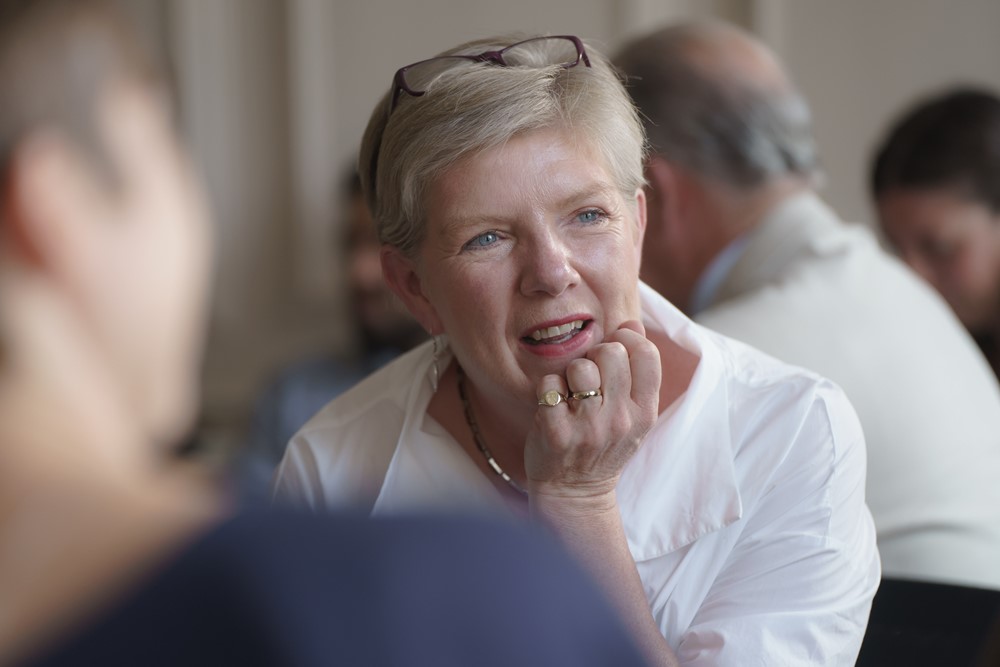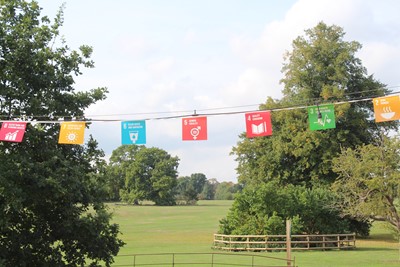Female leadership in civil society
Authored by Rosemary Macdonald, CEO at UKCF
I have been in the community foundation world for 15 years. Over that time, I have noticed a significant shift in the leadership of community foundations.
We now have a majority of women as CEOs across the country. The trends we see today in our community foundations reflect the national picture around the UK. Across the voluntary sector, 58% of CEOs and 40% of trustees are women, according to ACEVO.
Charity CEOs, regardless of their gender, now face unprecedented challenges. On top of the reduced funding and increased demand for services across the charity sector, charity CEOs need to be able to keep their team motivated and passionate, make sure the books balance, always be on the lookout for funding opportunities, report back to donors, manage our boards, make sure the IT works, ensure that our marketing is dynamic – especially under the shifting power of social media – be able to respond to crises and ensure that we fulfil our charitable objectives in a fast-changing world. All while continuing our own motivation and training as we deliver an inspiring strategy.
So why would anyone take on such a challenge? Speaking to my female colleagues across the network, executing the role of a charity CEO largely comes down to wanting to make a difference and feeling the commitment is worth it. The fact is that leadership in any field is a challenge. You can’t do it unless you have great people around you. Whether we take inspiration from our teams, our professional networks or personal heroes, maintaining positivity is critical.
 Rosemary Macdonald, CEO at UKCF
Rosemary Macdonald, CEO at UKCF
The journey to gender equality in the UK is by no means complete and it is vital that we continue on the right path. The Government's Gender Equality Roadmap recognises that 'women are, on average, more likely to enter the workforce with higher qualifications than men, but earn less per hour. They are more likely to take on unpaid work, three times as likely to be working part time and likely to save less into their private pensions.' So why is this happening?
A recent discussion with my team about their workplace experiences brought home some of the underlying self-doubt women feel today. The most frequently mentioned point was the concern of people’s perceptions in the workplace – the pressure to give work 100% all the time in order to progress – that personal wellbeing and responsibilities are often still be seen to ‘get in the way’ of that.
The charity sector is no stranger to staff burnout and frequent staff turnovers. One must ask: does our output need to be 100% all the time? Surely the main benefit of being part of a team is that it ebbs and flows; when one person needs to step back for a while, others pick up the slack. In turn, that support should be reciprocated. When you compare the inefficiency of having to recruit every year to having a more compassionate approach to the human condition, surely a bit of give and take is the better option.
The other thing that struck me in conversations was how much pressure my female colleagues put on themselves to be perfect. The perfect employee. The perfect mother. The perfect partner. The perfect role model. When organisations continue to reinforce that perception, you can soon feel like you are not living up to the ideal. As a female leader, I understand that pressure. But none of us are perfect, nor should we be. If we were perfect then we’d never know how to recover from mistakes, nor learn or develop resilience. Not being perfect is a blessing if we want to grow.
Creating a more diverse culture of CEOs across civil society that reflects UK communities brings the opportunity to remove barriers at all professional levels. For example, there is much to do in addressing the gender pay gap and providing career development for our people of all protected characteristics. The chance for leaders to elevate those who follow in our footsteps is one that must be acted on if we want to achieve an equitable society for all.
Discover more

Together 23 conference reflections

Legacy: gifting tomorrow

SDGs: The value of local collaboration

Strengthening refugee support at a local level
UK Community Foundations is a registered charity in England and Wales. Registered company in England and Wales . Registered address: UK Community Foundations, Northgate Business Centre, 38-40 Northgate, Newark, NG24 1EZ. Registered company no. 2651777 | Registered charity no. 1004630. Copyright © 2021 All rights reserved.

